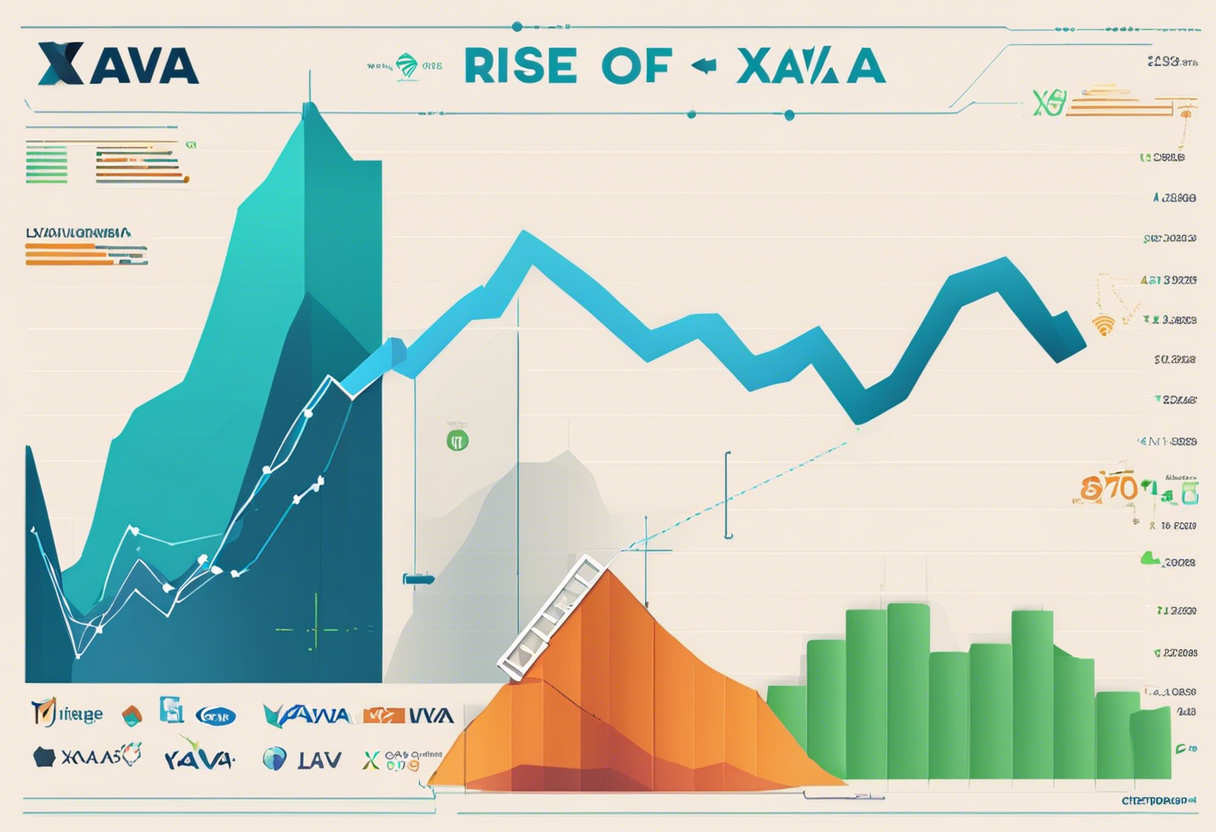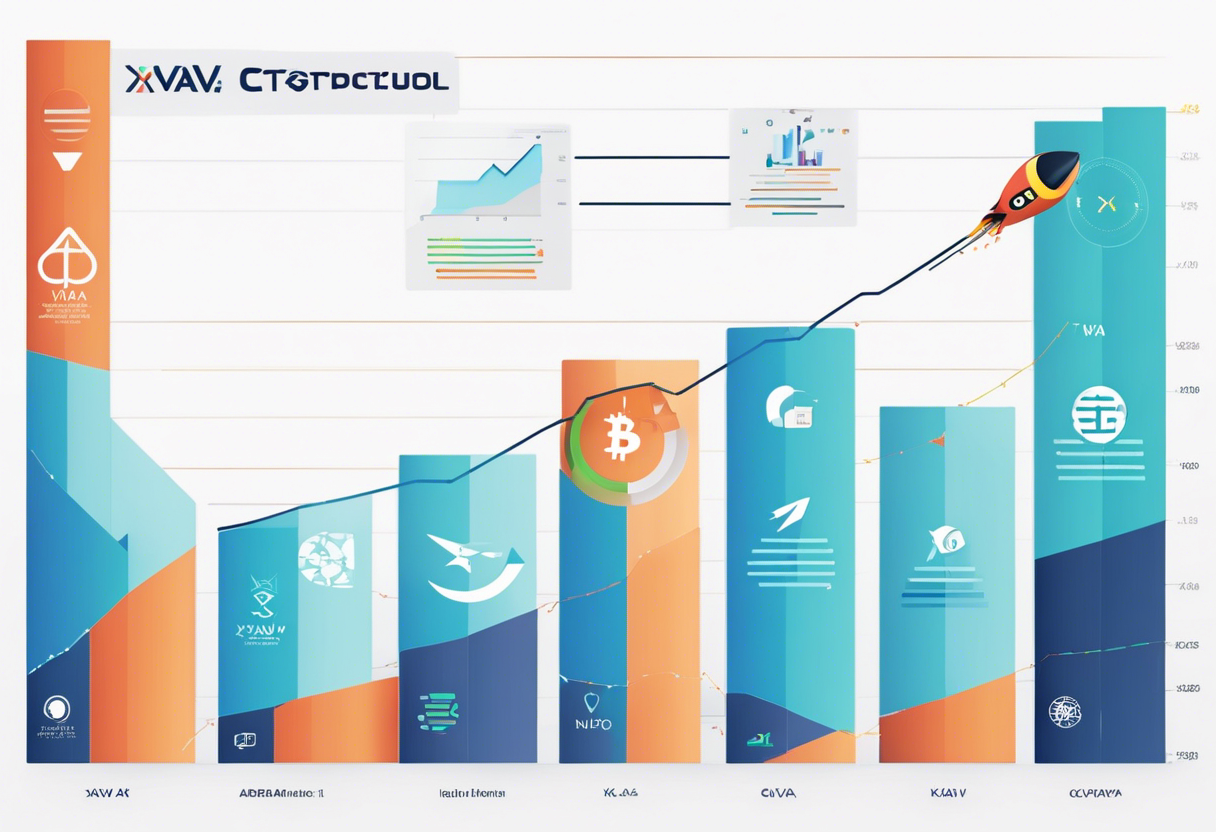The Rise of XAVA: An In-Depth Analysis of its Potential in the Crypto Market

1. Getting Started with Cryptocurrency Investing
Investing in cryptocurrencies can be an exciting and potentially lucrative venture. However, it is important to approach it with caution and a solid understanding of the market. Here are some key steps to help you get started with cryptocurrency investing:
- Educate Yourself: Before diving into the world of cryptocurrencies, it is crucial to educate yourself about the underlying technology, such as blockchain, and the various digital currencies available. Familiarize yourself with different cryptocurrencies, their uses, and their potential for growth.
- Choose a Reliable Exchange: Selecting a reputable cryptocurrency exchange is crucial for a smooth and secure trading experience. Research and compare different exchanges based on factors such as security features, trading fees, liquidity, and user reviews.
- Create a Wallet: A cryptocurrency wallet is essential for storing your digital assets. Decide on the type of wallet you prefer – hot wallets (online) or cold wallets (offline) – depending on your security needs. Follow proper security protocols and keep your wallet credentials safe.
- Start with a Small Investment: As a beginner, it is wise to start with a small investment until you gain more knowledge and experience in the market. This approach helps to mitigate potential risks and allows you to learn and adapt your investment strategy as you go.
- Diversify Your Portfolio: Cryptocurrency investments can be volatile, so it is essential to diversify your portfolio. Allocate your investment across different cryptocurrencies to reduce risk and increase the potential for growth. Consider investing in both established cryptocurrencies and promising newcomers.
- Stay Updated: Cryptocurrency markets can be highly volatile and subject to rapid changes. Stay informed about market trends, news, and regulatory developments that can impact the value of your investments. Utilize reliable sources and platforms to keep yourself updated.
- Set Realistic Goals: It is important to set realistic investment goals and stick to your strategy. Understand that cryptocurrency investments can experience both high gains and losses. Avoid making impulsive decisions based on short-term market fluctuations and focus on long-term goals.
Remember, investing in cryptocurrencies carries risks, and no investment comes without the potential for loss. It is crucial to conduct thorough research, seek advice from experts, and invest only what you can afford to lose. With the right knowledge, strategy, and risk management, cryptocurrency investing can offer exciting opportunities in the ever-evolving world of digital assets.
2. The Rise of Bitcoin and Other Major Cryptocurrencies
The emergence of Bitcoin in 2009 marked the beginning of a new era in the financial world. Since then, Bitcoin has experienced a significant rise in popularity, becoming the most well-known and valuable cryptocurrency to date. Its decentralized nature, combined with the promise of anonymity and security, has attracted a large number of investors and enthusiasts.
Bitcoin's success has paved the way for the rise of other major cryptocurrencies such as Ethereum, Ripple, and Litecoin. Each of these cryptocurrencies has its own unique features and use cases, catering to different aspects of the digital economy. Ethereum, for example, has gained attention for its smart contract functionality, enabling the creation of decentralized applications (DApps). Ripple, on the other hand, focuses on providing fast and low-cost international money transfers.
The increasing popularity of cryptocurrencies can be attributed to several factors. Firstly, they offer a decentralized and transparent system, eliminating the need for intermediaries like banks. This allows for faster and cheaper transactions, making cryptocurrencies an attractive alternative to traditional payment methods.
Furthermore, the potential for high returns on investment has drawn many individuals and institutional investors to the crypto market. The volatile nature of cryptocurrencies presents opportunities for profit, albeit with associated risks. As a result, trading and investing in cryptocurrencies have become more accessible and appealing to a wider audience.
The rise of Bitcoin and other major cryptocurrencies has also fueled innovation within the blockchain industry. Blockchain technology, the underlying technology behind cryptocurrencies, has the potential to revolutionize various sectors such as finance, supply chain management, and healthcare. The increased interest in cryptocurrencies has driven research and development efforts, leading to the creation of new blockchain-based solutions and applications.
While the future of cryptocurrencies remains uncertain, their rise and continued development point towards a growing acceptance and integration into the mainstream financial system. Governments and regulatory bodies are gradually establishing frameworks to govern the use and trading of cryptocurrencies, which further validates their legitimacy.
As more individuals and institutions understand and adopt cryptocurrencies, their potential for transforming the global economy becomes increasingly evident. The rise of Bitcoin and other major cryptocurrencies serves as a testament to the disruptive power of decentralized digital currencies and the remarkable possibilities they bring to various industries.
3. Understanding Blockchain Technology
Blockchain technology is a revolutionary concept that has gained significant attention in recent years. At its core, blockchain is a decentralized and transparent digital ledger that records transactions across multiple computers. This technology provides a secure and immutable record of transactions, making it ideal for cryptocurrencies like XAVA.
One of the key features of blockchain technology is its distributed nature. Instead of relying on a central authority, blockchain operates through a network of nodes that validate and verify transactions. This decentralization ensures that there is no single point of failure, making it highly resistant to hacking and fraud.
Additionally, blockchain technology utilizes cryptographic algorithms to secure and authenticate data. Every transaction is encrypted and linked to the previous transaction, forming a chain of blocks. This ensures the integrity of the data and prevents any tampering or unauthorized access.
Another essential aspect of blockchain is transparency. All transactions recorded on the blockchain are publicly available and verifiable by anyone. This transparency not only enhances trust but also enables a high level of accountability.
Furthermore, blockchain technology removes the need for intermediaries, as it allows for peer-to-peer transactions. This eliminates the associated costs and delays, making transactions faster and more efficient. Moreover, it opens up new possibilities for decentralized applications and smart contracts.
In conclusion, blockchain technology is the foundation of XAVA's potential in the crypto market. Its decentralized nature, secure design, transparency, and efficiency make it a groundbreaking technology with numerous applications. Understanding and harnessing the power of blockchain technology is essential for anyone looking to explore the world of cryptocurrencies, including the promising potential of XAVA.
4. Risks and Challenges in the Cryptocurrency Market
The cryptocurrency market, despite its rapid growth and potential, is not without its risks and challenges. Investors and participants in this market should be aware of these factors to make informed decisions. Some of the key risks and challenges in the cryptocurrency market include:
- Volatility: Cryptocurrencies are known for their high price volatility, making them attractive for traders but also posing risks. Sudden price fluctuations can lead to significant gains or losses, making it crucial for investors to carefully manage their investments.
- Security Concerns: The decentralized nature of cryptocurrencies makes them vulnerable to cyber-attacks, hacking, and fraud. Investors must be diligent in securing their digital wallets and platforms to protect their assets.
- Regulatory Uncertainty: Governments worldwide are still developing regulations for cryptocurrencies, which can create an uncertain environment for investors. Regulatory changes and crackdowns on illegal activities can impact the market and the value of cryptocurrencies.
- Liquidity Issues: Some cryptocurrencies may suffer from low liquidity, meaning it can be challenging to buy or sell large amounts without impacting the market significantly. This lack of liquidity can result in higher transaction costs and potential difficulties in exiting positions.
- Market Manipulation: The cryptocurrency market is susceptible to manipulation by large traders or groups. Pump and dump schemes, fake news, and market manipulation can distort prices, making it essential for investors to conduct thorough research and remain cautious.
- Technology Risks: Cryptocurrencies rely on complex blockchain technology, which can be exposed to bugs, glitches, or security flaws. Technical vulnerabilities can lead to network disruptions, hacking attacks, or loss of funds.
- Lack of Adoption: Widespread adoption of cryptocurrencies is still a challenge. Despite growing acceptance, many businesses and individuals are hesitant to adopt them due to concerns about volatility, security, and regulatory issues.
- Competition: The cryptocurrency market is continuously evolving, with new projects and coins emerging regularly. Investors face the challenge of identifying promising projects among the vast array of options available.
To navigate these risks and challenges, investors should conduct thorough research, seek expert advice, diversify their portfolios, and stay updated on market developments and regulations. Understanding and managing these risks can help participants in the cryptocurrency market make informed decisions and maximize their chances of success.
5. The Future of Cryptocurrency
The future of cryptocurrency looks promising, and it is expected to continue its path of growth and development. Here are a few key points to consider:
- Mainstream Adoption: As cryptocurrencies become more familiar and widely accepted, we can expect to see increased adoption by individuals and businesses. The growing acceptance of digital currencies by major companies and financial institutions is a clear indication of their potential.
- Regulatory Framework: Governments around the world are realizing the need to establish regulatory frameworks to govern the use of cryptocurrencies. This will provide clarity and stability to the market, attracting more investors and reducing the potential for fraud or illegal activities.
- Technological Advancements: The underlying blockchain technology is continually evolving, creating new opportunities and solutions. Advancements in areas such as scalability, privacy, and interoperability will make cryptocurrencies more efficient and user-friendly.
- Integration with Traditional Finance: As the cryptocurrency market matures, we can expect to see closer integration with traditional financial systems. This will enable easier conversions between cryptocurrencies and fiat currencies, as well as the development of new financial products and services.
- Decentralization and Security: The decentralized nature of cryptocurrencies, combined with the robust security provided by blockchain technology, makes them an attractive solution for individuals and businesses seeking secure and transparent transactions.
- Global Financial Inclusion: Cryptocurrencies have the potential to bridge the financial gap for the unbanked and underbanked populations around the world. By providing easy access to financial services, cryptocurrencies can empower individuals and foster economic growth in developing economies.
- Environmental Impact: The focus on energy efficiency and sustainability is growing within the cryptocurrency industry. With advancements in blockchain technology, the environmental impact of mining and transaction processing can be reduced, making cryptocurrencies more sustainable in the long run.
In conclusion, the future of cryptocurrency is bright as it continues to gain mainstream acceptance and undergo technological advancements. With proper regulation and integration with traditional finance, cryptocurrencies have the potential to revolutionize the global financial system, promote financial inclusivity, and provide secure and efficient transactions for users worldwide.
6. Conclusion
In conclusion, the analysis of XAVA's potential in the crypto market reveals promising prospects for this digital currency. The innovative features and technology behind XAVA, including its decentralized ecosystem and robust security measures, position it as a strong contender in the evolving landscape of cryptocurrencies. The increasing adoption by individuals and businesses highlights the growing demand and confidence in XAVA as a reliable investment option. Additionally, the strategic partnerships and collaborations with established players in the financial industry further enhance the credibility and market reach of XAVA. As the crypto market continues to evolve, XAVA has the potential to carve out a significant presence and play a crucial role in shaping the future of digital currencies.







































